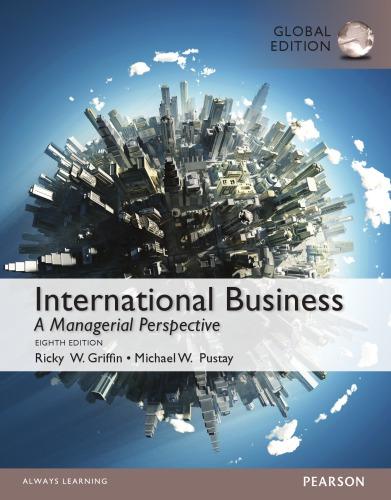P2-3. Does intellectual property theft undermine the workings of the free-market system? Most economists would agree that
Question:
P2-3. Does intellectual property theft undermine the workings of the free-market system? Most economists would agree that intellectual property rights (IPR) are critical components of a well-functioning market system. They encourage inventors to develop new technologies to benefit consumers or lower production costs and motivate firms to develop products and brand names that consumers can trust. For many firms, ownership of IPR forms the basis on which they compete in world markets.
Yet one of the unexpected consequences of globalization is increased levels of product piracy, which threaten the profitability and sometimes the existence of firms that have invested heavily in intellectual property. A pharmaceutical company that spends 20 percent of its revenues on R&D, for example, is at a cost disadvantage to a rival who steals its innovations and invests nothing itself in R&D.
The Business Software Alliance believes that $63 billion of software is illegally sold by pirates each year.
Piracy of recorded music and illegally duplicated DVDs is estimated to cost recording studios and movie studios
$18 billion a year. Counterfeit drugs yearly cost legitimate pharmaceutical manufacturers $37 billion in sales. The fake Rolex watches, Louis Vuitton luggage, Prada handbags, and other faux luxury goods peddled on the streets of Asia, Europe, and the Americas amount to additional untold billions of losses for the companies whose intellectual property has been stolen.
Step by Step Answer:

International Business A Managerial Perspective
ISBN: 9781292018218
8th Global Edition
Authors: Ricky W. Griffin, Michael Pustay





